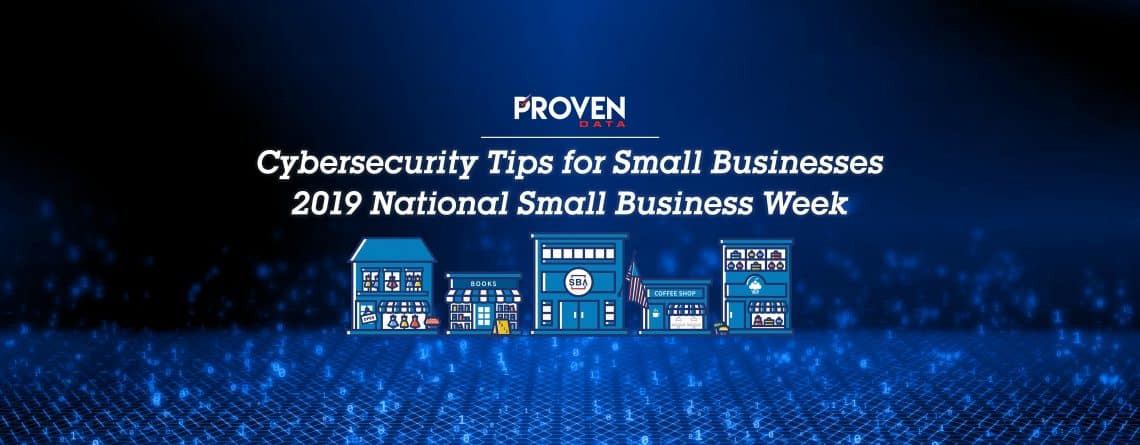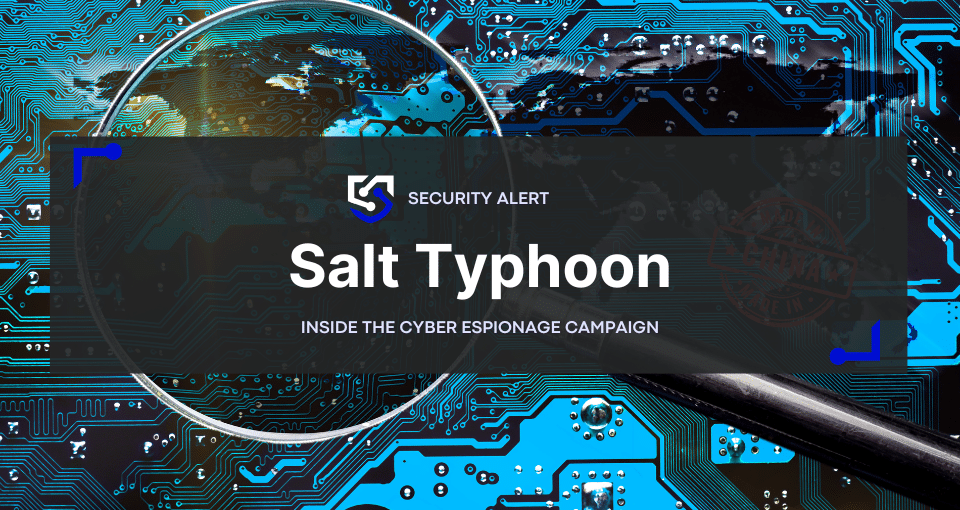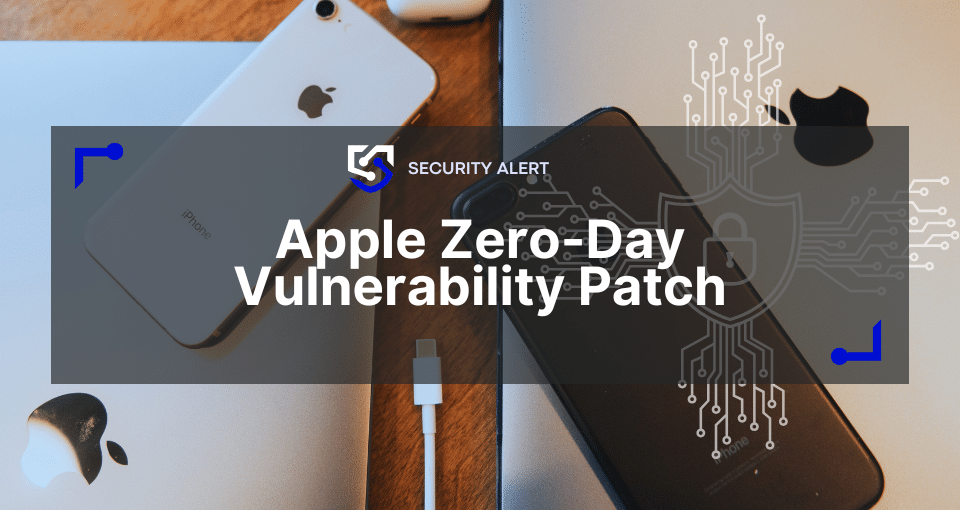In conjunction with the U.S. Small Business Administration, Proven Data is celebrating National Small Business Week 2019! We’re helping to share cyber security tips that small business can use right away. Small businesses are the backbone of the US economy, and according to the U.S. Small Business Administration’s Office of Advocacy, 2018 saw a growth of 1.9 million new jobs of this business size.
Cyber security and small business
Like every other company entering the digital age, small businesses heavily rely on technology to acquire new customers and store their digital records. Small businesses play such an important role in our economy, and it’s becoming too common for these organizations to fall victim to a cyber attack. Cyber crime can have consequences that affect the bottom line of small businesses such as downtime in operations and recovery costs. Small businesses must shift their focus towards cyber security and have an incident response plan in place.
Why are small businesses targets for cyber attacks?
Small businesses are consistently becoming targets of global cyber crime. The 2019 Verizon Data Breach Report concludes that roughly 43% of cyber incidents studied involved small businesses, and the majority of these attacks are perpetrated by outsiders or organized criminal organizations.
Many small business owners are unaware of the expanding threat landscape when it comes to cyber crime and data breaches. Small businesses often lack the resources and experience when it comes to developing an action plan to keep their data safe, and we must empower these organizations to do the best they can for achieving more holistic cyber security.
Not enough training and awareness
It’s common for small businesses to overlook the importance of cyber security training and awareness as they fail to see the significance of these cyber threats. As a result, small business workforces cannot implement the latest tools & trends helping to improve the security framework of their organization. Because cyber threats are consistently changing & evolving, it’s important that small businesses gain awareness on all the latest attacks affecting businesses, like ransomware. Training employees on modern security practices such as enabling Two-Factor Authentication can be an achievable task that will only take a session or two of training!
Failure to update software regulalry
One of the most common ways ransomware finds it’s way into a small business network is through vulnerabilities found in older software that has yet to be updated. Failure to update software and firmware regularly on company devices can leave business data and information exposed to these bad actors. Small businesses that overlook the importance of a simple update might find themselves victim of a ransomware or data breach attack. Create a regular update schedule and enable ‘Check for Updates’ on all systems, networks, and devices being used within the small business.
Cyber security tips for small businesses
To celebrate National Small Business Week, our team is giving you the best cyber security tips to keep your company safe!
Create a positive culture
There’s no doubt small businesses lack a serious culture when it comes to protecting business data and keeping client information safe. As a result of most business owners and leaders having a dull attitude on the subject matter, this is reflected on the rest of the organization which can become a low priority for employees. If small business leaders take a more positive and curious attitude around cybersecurity, it will have a lasting effect on the rest of the organization. Host regular meetings and send out information regularly which can help everyone understand what’s happening when it comes to the latest in cyber crimes and phishing scams.
Enforce a password policy
Small businesses become more vulnerable to attacks with their inability to set policies & procedures around better password management. If there are no guidelines in place, small businesses tend to choose weaker passwords which may have been revealed in a previous data breach. Make sure employees are using a password manager (such as LastPass) which can add another layer of security by encouraging users to choose more complex and dynamic passwords.
Utilize access management and set privileges
Do small business leaders keep a log of what employees have access to certain documents and data? Implementing access management and privileges can give small businesses a better idea of which employees engage with sensitive business documents. Access management becomes extremely significant to prevent insider threats and potentially disgruntled employees from creating havoc on your networks. Utilizing these security features will help small businesses identify what data is most significant, and keep that information secure with improved safeguards. It also gives management an insight on what documents are being sent where, and this information is invaluable when choosing better security policies for a small business.
Happy National Small Business Week from Proven Data! Take advantage of these cyber security tips and keep your data secured today. We encourage small businesses to learn about the cost of implementing cyber security solutions and utilize more resources found on the official Proven Data Blog.
Does your small business need cyber security?
Learn more about cyber security costs for small businesses!
Cyber Security Costs Guide







